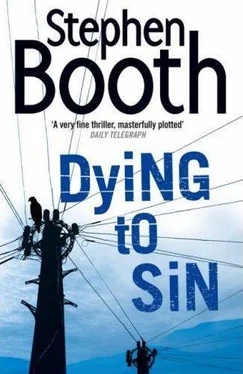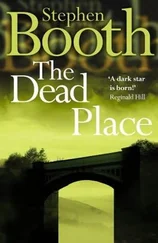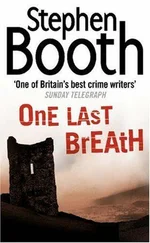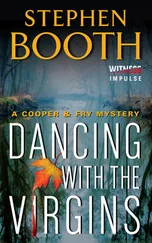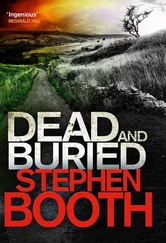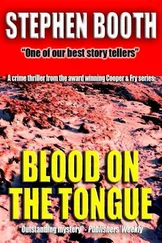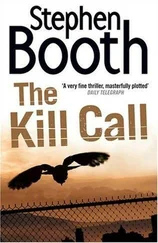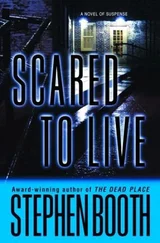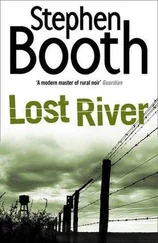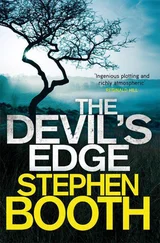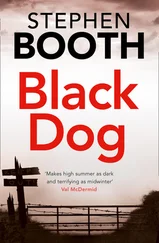Stephen Booth - Dying to Sin
Здесь есть возможность читать онлайн «Stephen Booth - Dying to Sin» — ознакомительный отрывок электронной книги совершенно бесплатно, а после прочтения отрывка купить полную версию. В некоторых случаях можно слушать аудио, скачать через торрент в формате fb2 и присутствует краткое содержание. Жанр: Полицейский детектив, на английском языке. Описание произведения, (предисловие) а так же отзывы посетителей доступны на портале библиотеки ЛибКат.
- Название:Dying to Sin
- Автор:
- Жанр:
- Год:неизвестен
- ISBN:нет данных
- Рейтинг книги:3 / 5. Голосов: 1
-
Избранное:Добавить в избранное
- Отзывы:
-
Ваша оценка:
- 60
- 1
- 2
- 3
- 4
- 5
Dying to Sin: краткое содержание, описание и аннотация
Предлагаем к чтению аннотацию, описание, краткое содержание или предисловие (зависит от того, что написал сам автор книги «Dying to Sin»). Если вы не нашли необходимую информацию о книге — напишите в комментариях, мы постараемся отыскать её.
Dying to Sin — читать онлайн ознакомительный отрывок
Ниже представлен текст книги, разбитый по страницам. Система сохранения места последней прочитанной страницы, позволяет с удобством читать онлайн бесплатно книгу «Dying to Sin», без необходимости каждый раз заново искать на чём Вы остановились. Поставьте закладку, и сможете в любой момент перейти на страницу, на которой закончили чтение.
Интервал:
Закладка:
‘I suppose that’s no surprise.’
‘No. A high-profile shooting takes immediate priority over our old remains at Pity Wood. So all the expertise will be arriving from Ripley, even as we speak. At least that means a lot more resources — there’ll be separate teams concentrating on the new lines of enquiry.’
‘Pity Wood is ours, then?’ said Cooper.
‘Pretty much. So we’d better get back to the farm.’
A few minutes later, as they got close to Pity Wood, Cooper saw a solitary figure walking along the edge of the road, trying to stay off the muddy verge. A young man in his twenties, dark hair, medium height. A black padded jacket. ‘ You know, you see asylum seekers wearing them when they get pulled off the EuroStar .’
‘I’m going to pull up. Let’s check this guy out.’
When he heard the car slowing down, the man looked as though he was about to start running. But he slipped on the mud, thought better of it, and slowed to a walking pace again.
He didn’t look round to see who was in the car until it stopped just ahead of him, and Cooper got out.
‘Police, sir. DC Cooper, from Edendale CID. Don’t worry, you’re not in trouble, but could you tell me your name?’
‘My name is Mikulas Halak.’
‘Where are you from?’
‘Slovakia.’
The young man was carrying a small rucksack over his shoulders, and his skin was a shade or two darker than most Derbyshire folk. In some places, that would be enough to put him under suspicion. Fry got out of the car and came to stand on the other side of Halak.
‘And what are you doing in Derbyshire, Mr Halak?’
‘I’m doing no harm. I’m looking for my sister. She was working here, in this place.’
Cooper and Fry looked at each other.
‘In Rakedale?’ asked Fry. ‘Your sister was working in Rakedale?’
Halak pointed out Pity Wood in the distance. Even from here, the police vehicles were visible, and one of the crime scene tents was flapping damply in the breeze.
‘I believe she had work at the farm, there. I’ve seen it on the television. I believe Nadezda was there. Look, I have a photograph.’
‘Get in the car, please, sir,’ said Fry. ‘We need to talk to you back at the station.’
When Mikulas Halak had been provided with coffee and seated in a free interview room, they checked his documents. He carried a Slovak passport, issued since the country had become a member of the European Union, and everything looked to be in order.
Once he seemed reassured and a little more relaxed, Fry produced the broken crucifix in its clear plastic evidence bag.
‘Do you recognize this, sir?’
‘Nadezda had one just like it,’ said Halak. ‘But it wasn’t broken like that.’
‘Would there be any way to tell whether it was hers?’
‘My sister — she always put her initials on her things, in case someone tried to take them from her. She would scrape it, you know.’ He mimicked using a small, sharp object like a needle on the back of his hand.
‘She scratched her initials on her possessions?’
‘Yes.’
Fry picked up the bag and turned it over. She held it up to the light and squinted at the back of the crucifix. The metal was flaking away and discoloured. But in the middle, where the upright and the arms of the cross met, she could see the glitter of the scratch marks.
‘N.H.’
‘Nadezda Halak. That is my sister’s.’
The photograph Halak had produced showed a young woman with shoulder-length, dark brown hair pulled back and tied behind her head. Her eyes were a warm brown, and her brows finely arched.
She wasn’t exactly pretty, though. Her skin had a faintly sallow tone, and her cheeks showed the signs of faint blemishes, the residue of some earlier illness, perhaps. And Fry thought Nadezda’s jaw was wide enough to have confused the anthropologist, if that had been all he had to go on. Nadezda was wearing a white nylon jacket, unzipped to reveal a T-shirt underneath. She was smiling, but not showing her teeth.
‘She was very unhappy in Slovakia,’ said Halak. ‘She was poor, we were all poor. But Nadezda had no hope of work. She watched the television, and she kept saying she wanted to go to England, or the USA. She had been married, but she was treated very badly by her husband. He beat her, and hurt her very much. Then she said she would get the money any way she could, and she would come to England to work. So that’s what she did.’
Fry watched his face as he said ‘any way she could’. She knew that many young women from Eastern Europe set off to Britain with high hopes, only to be sold into virtual slavery when they arrived at the airport, trafficked for their bodies.
‘Sir, I have to ask you this,’ she said. ‘Was your sister a prostitute?’
Halak became distressed.
‘No, no. She was a worker, an honest worker. She went where she could make money. But a prostitute? No, never.’
Before he left the station, Fry asked Mikulas Halak to agree to a buccal swab. A DNA sample would enable the lab to confirm whether he was indeed related to Victim A, and how closely.
But at last they did seem to have an identification for the first body, and she was no longer just Victim A. Now she had a name. Nadezda Halak, aged twenty-three, a Slovak from the city of Kosice. About five feet three inches tall, according to her brother. Slight build, dark brown hair.
All that remained of her was that hair, and a partial set of fingerprints from her sloughed-off skin. Oh, and those inexplicably decayed teeth.
Fry briefed the DI and received the congratulations she was hoping for. But she knew she wasn’t going to take the focus away from the shooting, which was currently claiming her bosses’ attention.
Accommodation had been found for Mikulas in Edendale, where he promised to make himself available if he was needed. Fry swore she would keep him informed of developments, and she meant it.
‘I hope he doesn’t do a runner, or anything else stupid,’ she said when he’d gone.
‘He doesn’t seem the type, does he?’ said Cooper.
‘If he’s concerned about his own status in this country, he might disappear again. After all, he’s achieved what he came here to do and found out what happened to his sister.’
‘I think he’ll be interested in helping us get justice for her,’ said Cooper. ‘Don’t you agree, Diane?’
‘Yes, but I bet forged papers can weigh heavily on your mind when you’re involved with the police.’
‘If they are forged.’
Cooper really did think Mikulas Halak would want justice. But he worried about that word sometimes. It seemed to mean something different when it came from other people’s mouths. Raymond Sutton, for example, had quite a contrary idea of its meaning.
26
Monday
At ten o’clock on Monday morning, with a major incident room getting into full swing at Edendale, two care assistants from The Oaks drove their minibus into Pity Wood Farm. They steered into a parking place that had been cleared for them as close to the farmhouse as possible, and they unloaded Raymond Sutton in a wheelchair via the hydraulic ramp at the rear of the vehicle.
When Sutton emerged into the light, he looked bemused by all the activity going on at his old home.
‘I thought it was all dead and buried, this,’ he said.
‘Some things don’t stay buried, Mr Sutton,’ said Fry. ‘Not for ever.’
‘I don’t know what you mean.’
When Cooper heard him say that, he started to have doubts about Raymond Sutton. It sounded too much like the script trotted out by suspects in the interview. ‘ To tell you the truth ’ always meant ‘ I’m about to tell you a lie now ’. And ‘ Tobe perfectly honest ’ could be translated as ‘ I’venever been honest in my life ’.
Читать дальшеИнтервал:
Закладка:
Похожие книги на «Dying to Sin»
Представляем Вашему вниманию похожие книги на «Dying to Sin» списком для выбора. Мы отобрали схожую по названию и смыслу литературу в надежде предоставить читателям больше вариантов отыскать новые, интересные, ещё непрочитанные произведения.
Обсуждение, отзывы о книге «Dying to Sin» и просто собственные мнения читателей. Оставьте ваши комментарии, напишите, что Вы думаете о произведении, его смысле или главных героях. Укажите что конкретно понравилось, а что нет, и почему Вы так считаете.
